Our proprietary algorithms cover the entire cardiac service line, enabling comprehensive cardiac disease detection and program growth.
Select a cardiac focus area to learn more
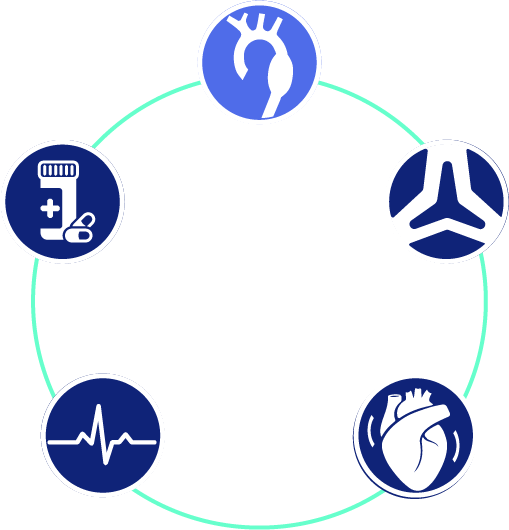
Aorta
Our Cardiac Intelligence® program includes screening algorithms for abdominal aortic aneurysms (AAA) and thoracic aortic aneurysms (TAA). Specifically, we analyze abdominal ultrasounds and CTs through the interface, which are two main diagnostics for identifying AAA and TAA, in addition to all other available patient data. Our system is able to follow patients through the progression from low severity to high severity.
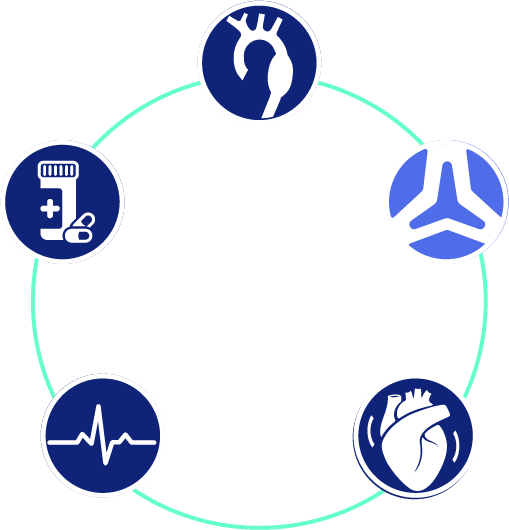
Structural Heart
Our Structural Heart capabilities include screening for aortic stenosis, aortic regurgitation, mitral stenosis, mitral regurgitation, tricuspid regurgitation, and pulmonary regurgitation. In our seminal work, published in the Annals of Thoracic Surgery (2021), we demonstrated 98.6% accuracy in screening for severe aortic stenosis using our AI platform, and the program enabled 100% accountability for all patients. This analysis showed that ~27% of Aortic Stenosis patients in the average hospital system's echo database do not have an active treatment plan.
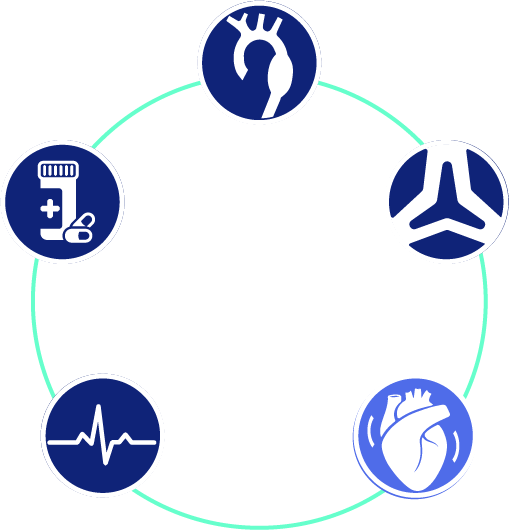
Cardiomyopathies
Within cardiomyopathies, our screening protocols include non-ischemic dilated cardiomyopathy, hypertrophic cardiomyopathy, amyloid, pulmonary hypertension, and cardiac oncologic disease. Cardiac Intelligence® reduces time to referral for consideration of advanced heart failure treatment options like LVAD or heart transplant. It also enables clinicians to track patient adherence to prescribed diagnostic studies and follow-up visits with cardiologists.
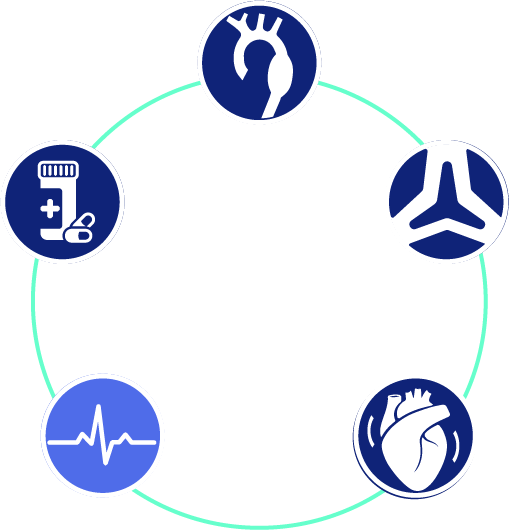
Electrophysiology
Our electrophysiology capabilities include screening for risk of sudden cardiac arrest (SCA), risk of LAA thrombus, and atrial fibrillation. SCA causes over 300,000 dealths annually in United States, however prevention is challening due to difficulty identifying at-risk patients. Less than 10% of patients who meet the AHA/ACC/HRS guidelines criteria for a primary prevention ICD receive a device implant, with women more likely to be undertreated. Cardiac Intelligence® continuously monitors patient data to find at-risk patients, and alert the patient's care team of any needed follow-up or disease progression.
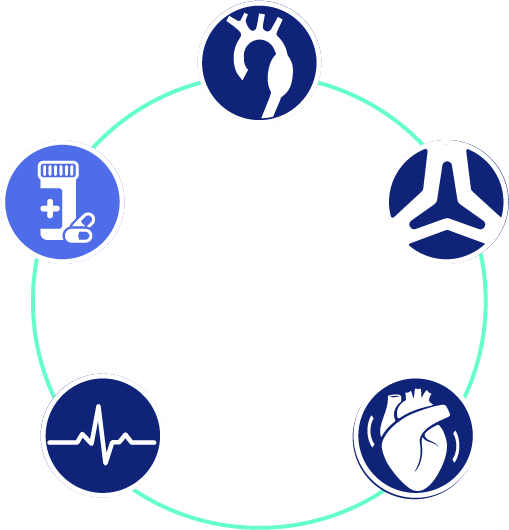
Guideline-Directed Medical Therapy
Cardiac Intelligence® also screens for an array of additional conditions including congestive heart failure, acute coronary syndrome, ischemic heart diseases, hypertension, and dyslipidemia. Our program monitors length of time and patient adherence to Guideline Directed Medical Therapy, as well as key markers including ejection fraction during this period to determine the potential need for referral to a heart clinic. Studies have shown that patients not optimized on Guideline Directed Medical Therapy are 26% more likely to have higher annualized healthcare utilization and emergency department visits.1
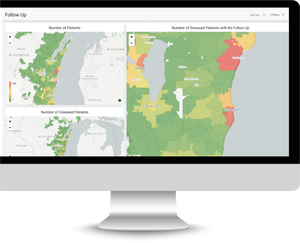
Schedule a Demo
Let us show you how our simple yet powerful program can help you grow your cardiac program while improving patient care. Schedule a 30-minute demo with one of our program experts today.
Schedule Now1. J Comp Eff Res. 2021 Oct;10(14):1055-1063. doi: 10.2217/cer-2021-0118. Epub 2021 Jul 6.
